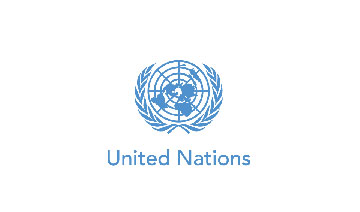UN international day of Rural Women (15/10)
Building rural women’s resilience in the wake of COVID-19

Women and girls are disadvantaged in this pandemic, a problem aggravated in rural areas. Rural women, with a crucial role in agriculture, food security and nutrition, already face struggles in their daily lives. Now, since COVID-19 and their unique health needs in remote areas, they are less likely to have access to quality health services, essential medicines, and vaccines. Restrictive social norms and gender stereotypes can also limit rural women’s ability to access health services. Furthermore, a lot of rural women suffer from isolation, as well as the spread of misinformation, and a lack of access to critical technologies to improve their work and personal life.
Despite all of that, rural women have been at the front lines of responding to the pandemic even as their unpaid care and domestic work increased under lockdowns.
We need measures to alleviate the care burden and better redistribute it between women and men, and between families and public/commercial services, espcially in the most marginalized remote villages . We need to advocate for sufficient infrastructre and services (water, health, electricity, etc.) to support women’s productive and unpaid care and domestic work, which is exacerbated by the crisis.
The pandemic has also heightened the vulnerability of rural women’s rights to land and resources. Discriminatory gender norms and practices impede women’s exercise of land and property rights in most countries and COVID-19 widows risk disinheritance. Women’s land tenure security is also threatened as unemployed migrants return to rural communities, increasing pressure on land and resources and exacerbating gender gaps in agriculture and food security.
Gender-responsive investments in rural areas have never been more critical.
The theme for this International Day of Rural Women is “Building rural women’s resilience in the wake of COVID-19,” to create awareness of these women’s struggles, their needs, and their critical and key role in our society.
The Invaluable Contribution of Rural Women to Development
The crucial role that women and girls play in ensuring the sustainability of rural households and communities, improving rural livelihoods and overall wellbeing, has been increasingly recognized. Women account for a substantial proportion of the agricultural labour force, including informal work, and perform the bulk of unpaid care and domestic work within families and households in rural areas. They make significant contributions to agricultural production, food security and nutrition, land and natural resource management, and building climate resilience.
Even so, women and girls in rural areas suffer disproportionately from multi-dimensional poverty. While extreme poverty has declined globally, the world’s 1 billion people, who continue to live in unacceptable conditions of poverty, are heavily concentrated in rural areas. Poverty rates in rural areas across most regions are higher than those in urban areas. Yet smallholder agriculture produces nearly 80% of food in Asia and sub-Saharan Africa and supports the livelihoods of some 2.5 billion people. Women farmers may be as productive and enterprising as their male counterparts but are less able to access land, credit, agricultural inputs, markets, and high-value agrifood chains and obtain lower prices for their crops.
Structural barriers and discriminatory social norms continue to constrain women’s decision-making power and political participation in rural households and communities. Women and girls in rural areas lack equal access to productive resources and assets, public services, such as education and health care, and infrastructure, including water and sanitation, while much of their labour remains invisible and unpaid, even as their workloads become increasingly heavy due to the out-migration of men. Globally, with few exceptions, every gender and development indicator for which data are available reveals that rural women fare worse than rural men and urban women and that they disproportionately experience poverty, exclusion, and the effects of climate change.
Source: United Nations


